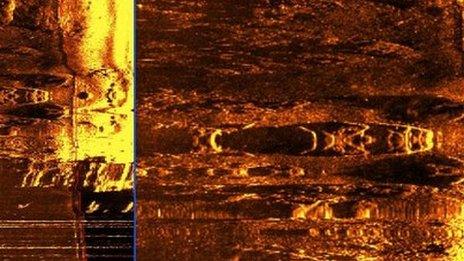WW2 'allied' bomb found in Lough Foyle blown up
- Published
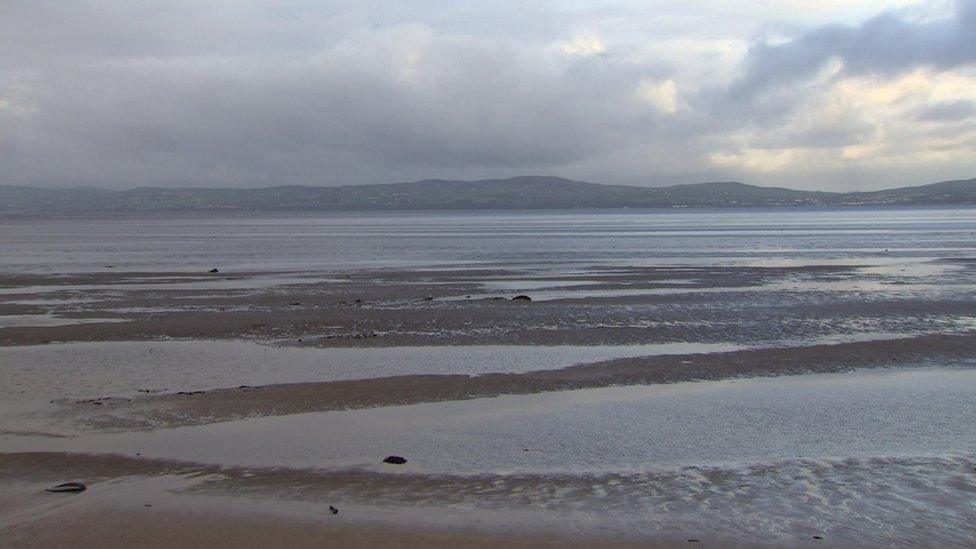
Lough Foyle stretches from County Londonderry in Northern Ireland to County Donegal in the Republic of Ireland
An unexploded World War II "allied" bomb found in Lough Foyle near Londonderry has been detonated.
The device was discovered in the waters close to the Campsie area of the city and examined by specialist Royal Navy clearance divers.
The 7.2 inch anti-submarine spigot mortar was destroyed in a controlled explosion on Wednesday night.
Train services that run nearby were suspended while the Navy bomb squad operation was carried out.
The device was discovered close to the port of Lisahally where about 60 U-boats surrendered during World War II.
Ordnance disposal
A Royal Navy spokesperson told BBC News NI: "This was an historic allied bomb, not an enemy bomb.
"Royal Navy dive teams in Scotland, Plymouth and Portsmouth are permanently held at readiness to deliver a wide range of tasks including explosive ordnance disposal."

Allow X content?
This article contains content provided by X. We ask for your permission before anything is loaded, as they may be using cookies and other technologies. You may want to read X’s cookie policy, external and privacy policy, external before accepting. To view this content choose ‘accept and continue’.

The wartime Derry naval base - shared by the Royal Navy, the Royal Canadian Navy and the United States Navy - was vital to the protection of convoys in the Atlantic and, at one time, 140 Allied escort ships were based on the River Foyle.
More than 66,000 Allied merchant seamen, Navy personnel and airmen died, with 175 Allied warships and 5,000 merchant ships destroyed by German U-boats.
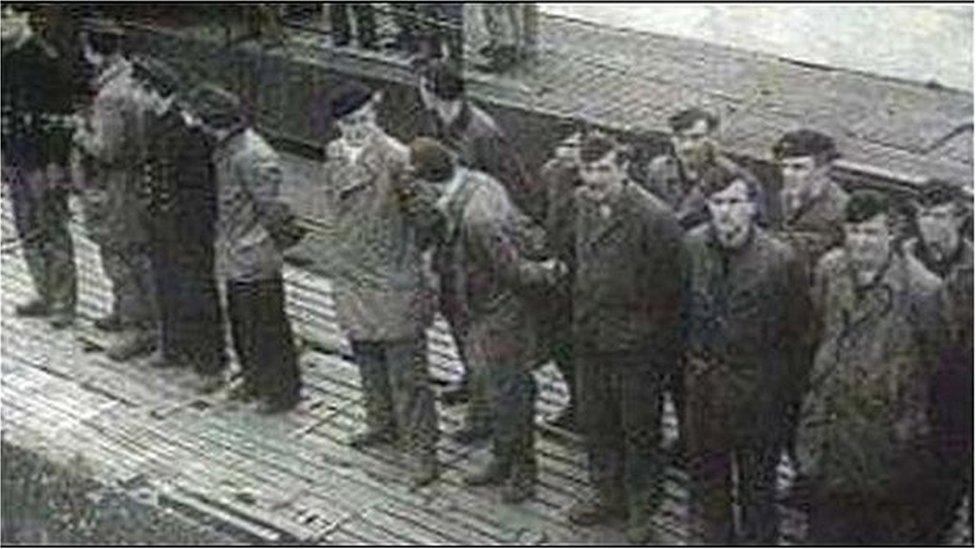
About 60 U-boats surrendered at the port of Lisahally, in Derry, during World War II
Despite its huge strategic importance during the six years of World War II Derry was bombed only once.
On the night of 15 April 1941, a single German aircraft dropped two 1000kg aerial mines, landing in Messines Park, a residential area built for ex servicemen in the Pennyburn area of the city.
Thirteen people were killed.
- Published14 February 2018
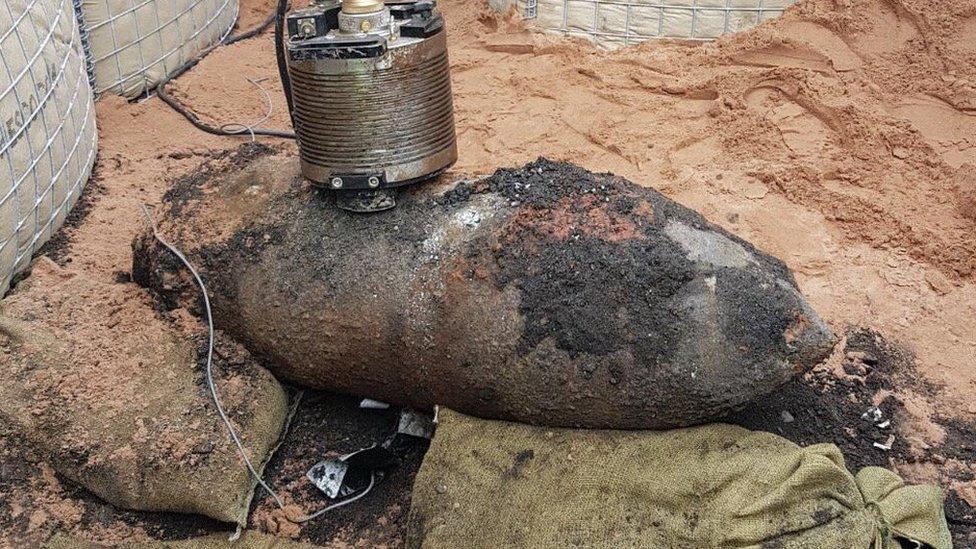
- Published15 May 2015
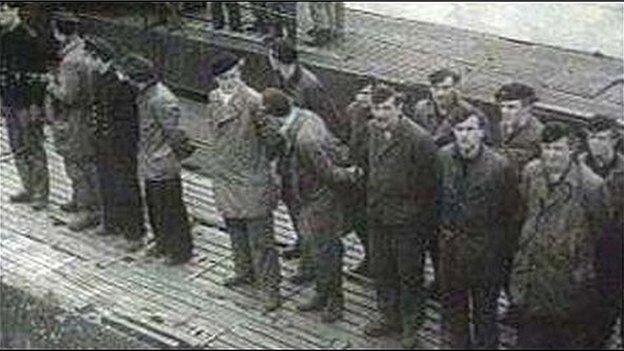
- Published27 April 2012
